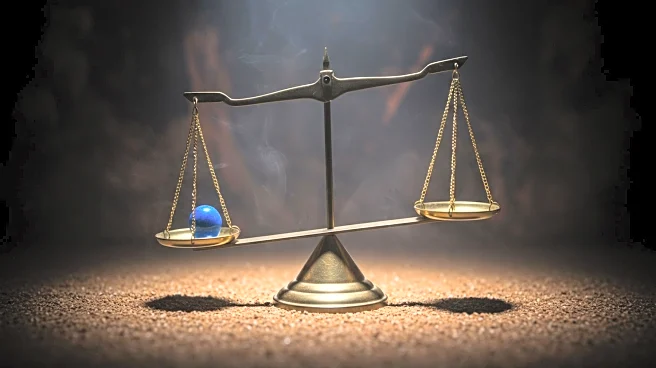What's Happening?
Hamas is at a crossroads, facing a pivotal decision that could significantly alter the future of Gaza. The organization is grappling with the choice between continuing its current path of resistance, which has led to significant hardship and destruction, or pursuing a new direction that could potentially lead to stability and development. Former Hamas leader Khaled Mashaal has emphasized the group's commitment to jihad and martyrdom, suggesting that the organization may continue its current trajectory. This decision comes amid ongoing tensions and challenges in the region, with the potential to impact the lives of millions in Gaza.
Why It's Important?
The decision by Hamas is crucial as it will determine the socio-political and economic landscape of Gaza. If Hamas opts to continue its resistance, it may lead to further isolation and economic hardship for the region, affecting the daily lives of its residents. Conversely, a shift towards peace and development could open doors for international aid and investment, improving living conditions and fostering growth. The outcome of this decision will have significant implications for regional stability and could influence broader geopolitical dynamics in the Middle East.
What's Next?
The next steps for Hamas will likely involve internal deliberations and consultations with key stakeholders within the organization. The decision could prompt reactions from neighboring countries and international entities, potentially leading to diplomatic engagements or interventions. Observers will be watching closely to see if Hamas will signal a change in strategy or reinforce its current stance, which will have immediate and long-term consequences for Gaza and the surrounding region.
Beyond the Headlines
The ethical and cultural dimensions of Hamas's decision are profound, as it involves weighing the value of resistance against the potential benefits of peace and development. This choice reflects broader themes of identity, survival, and the quest for autonomy in a region marked by historical conflict. The long-term implications could redefine the narrative of Gaza, influencing future generations and shaping the cultural and political identity of its people.









